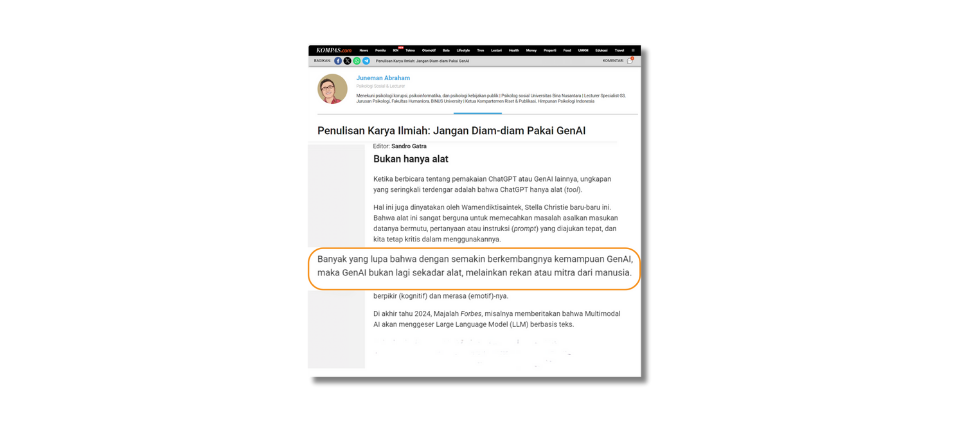Ethical Principles of Using GenAI in Academic Writing

Prof. Dr. Juneman Abraham, S.Psi., Vice Rector of Research and Technology Transfer at BINUS University, underscores the importance of ethical transparency when utilizing Generative AI (GenAI) in academic writing. He emphasizes that acknowledging the use of tools like ChatGPT is an essential principle often overlooked due to cultural gaps in crediting contributions and the absence of institutional mandates. Prof. Juneman notes that the reluctance to admit AI assistance fosters a “counterfeit self,” which, if unchecked, could cultivate corrupt behavior not only in academia but in broader aspects of life.
 |
 |
 |
 |
He argues that GenAI has evolved from being a mere tool to becoming a co-creator with human intelligence. This paradigm shift necessitates proper attribution to ensure integrity in scholarly work. Drawing from global practices, such as guidelines by Cambridge University and Elsevier, Prof. Juneman advocates for open acknowledgment of GenAI’s role, including specifics on how it was used. He warns against the unethical trend of concealing AI usage, which undermines academic credibility and critical inquiry.
Prof. Juneman highlights the necessity of viewing AI as a collaborative partner rather than a transactional tool. Citing examples from global literature, he calls for fostering genuine co-creation that integrates AI seamlessly into human creativity. He concludes by urging scholars to adopt transparent practices and attribute contributions ethically, ensuring academic integrity in an era where AI plays a growing role in research and innovation.
#AcademicIntegrity #EthicalAI #GenerativeAI #ChatGPTInAcademia #TransparentResearch #AIAndEducation #ResponsibleAIUse #ResearchEthics #AIAsCoCreator #InnovationWithIntegrity

